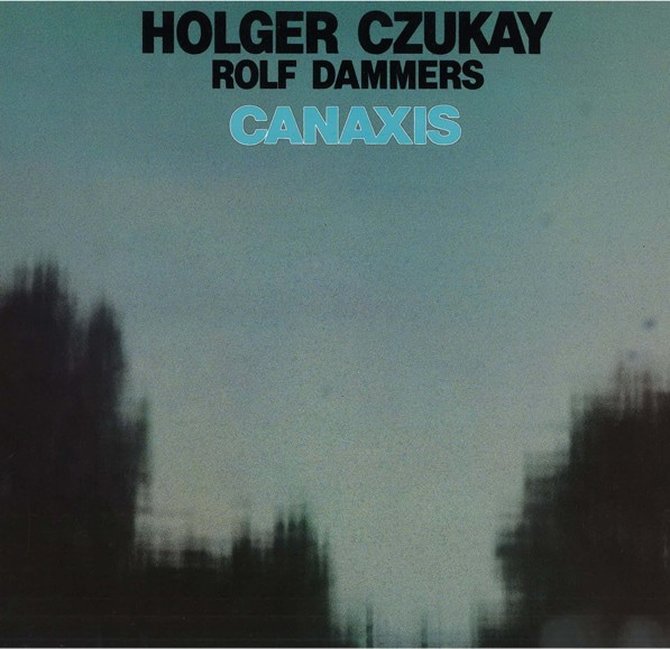A piece that, for me, was revelatory in terms of its simplicity, brevity and purity. Listening to it is like looking into a pellucid lake. It is deeply meditative, yet spiritually light.
Fauré’s Requiem: “In Paradisum” (1890) John Rutter & The Cambridge Singers
I’m more French than German when it comes to classical music and am always drawn to music that strives for simplicity and spiritual clarity. This is one of the most purely beautiful pieces of music I’ve ever heard. I especially like this recording because it’s very atmospheric – you can almost reach out and touch the choir.
“Canaxis” (1968) Holger Czukay & Rolf Dammers
This piece was recorded and released in the late 60s, years before the advent of ‘ambient’ or ‘world’ music. Using found recordings from across Asia, Holger Czukay then went into his studio and manipulated and looped them into long, trippy, deeply meditative pieces. This piece is full of cavernous clangs, monks chanting, sudden bells and gongs and the blips and bleeps of radio frequencies. Listening to it is a hallucinatory, hypnotic experience.
“Surf’s Up” (1971) The Beach Boys
I was introduced to the Beach Boys by a couple of stoners at university. Like everyone else, I thought there was nothing more to them than songs like “Fun, Fun, Fun” and so it was an absolute revelation to hear how beautiful their unknown late 60s / early 70s period was. The three-minute pop song doesn’t come any better, or more beautiful, than “Surf’s Up”. Split into three parts, it is another of Brian Wilson’s ‘pocket symphonies’. God only knows what the song is about but its emotional connection is undeniable. Although Brian had the voice of an angel, he knew he couldn’t compete with his younger brother Carl’s and so he handed vocal duties to him, and what a job Carl did.
“Once In A Lifetime” (1980) Talking Heads
I was at school when punk started, but I never really bought into it. I liked Bowie’s Berlin period and the odd Joy Division song, but punk seemed so unimaginative to me. Then, in 1980, I saw the video for “Once In A Lifetime” and it blew me away. Who is this guy who looks like Norman Bates and what is he doing with his body? What’s he singing about? I can’t tell you how weird and wonderful this song seemed to me at 15 years old. Gradually, I learned more about the song, that he took all the lyrics from TV evangelist shows, for example, and that those jerky hand and body movements were actually taken from African tribal dances. Suddenly, I saw artistry and imagination. I took the plunge and bought the album, not quite knowing what I was letting myself in for. I was captivated and confused in equal measure and it took me many years to get fully to grips with these songs. The album is a very intense listening experience. The lyrics are clever and oblique, dealing with terrorism, obsession, confusion, paranoia, the apocalypse. The most complicated of these ideas are often expressed in the backing vocals, which act as a voice of reason to the paranoia of the main vocals. The music is incredibly manic and funky. If “Speaking in Tongues” is their ‘disco’ album, then this is their ‘funk’ album. Each song is driven by a minimal, fast, pulsating rhythm and the whole thing is torn through by Adrian Belew’s screaming guitar.
“Circles” (1984) Wim Mertens
I love this piece for its purity and simplicity. Mathematical in approach, it becomes very emotional in its effect as you listen to it. After a while, your senses become unanchored and the piece lulls and moves you to its dramatic, abrupt ending. I like a lot of Wim Mertens’ music. He draws heavily from Minimalism but he’s also incredibly lush and romantic.
“The Great Lakes” (1985) Morgan Fisher
I first heard this piece when I was 19 or 20 and it was another of those revelations. It takes Terry Riley’s idea of the time-lag accumulator and applies it to oriental soundscapes. The piece is totally about process, not product. As each part of the piece is introduced and repeated endlessly, the piece becomes haunting and fragile. I think it works rather like memories do – new memories come in and layer on top of old ones, so that they continually fade without ever disappearing completely.
“Mustt Mustt” (Massive Attack’s Duck Pond Dub) (1990) Nusrat Fateh Ali Khan
I love dub music—not just dub reggae, but the whole idea of the bass energy and rhythmic complexity of dub, whatever kind of music it’s applied to. This version by Massive Attack was done in 1990, four or five years before the remixing scene really got underway, and it’s never been bettered. It’s the perfect fusion of Sufi spirituality of the east and western rhythms. It sounds incredibly cheesy when you put it like that but, for me, it works completely. Every time I listen to it, I pull something new out of the mix.

